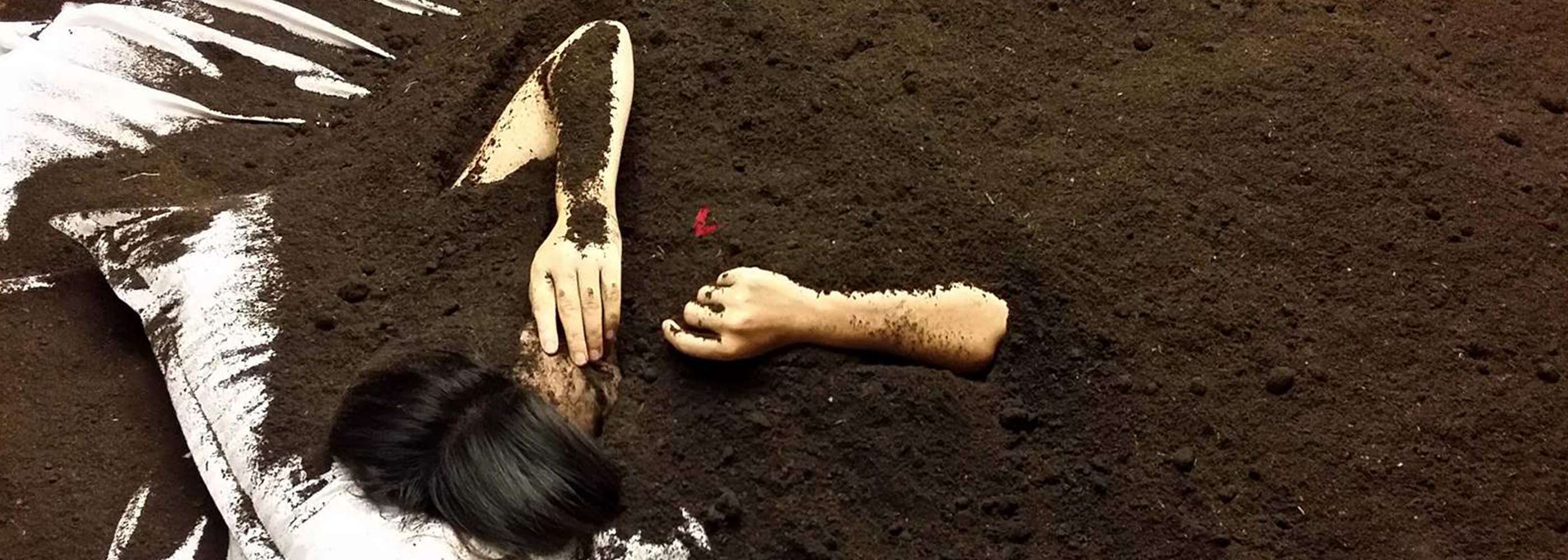

In "Expensive Evidence—Dust," Li Xinmo explores the themes of violence, silence, and the fragility of life through a vivid and impactful performance. As an integral part of German theater director Cao Kefe's work "The Mirror of Time," this piece of performance art is not only an interpretation of Borges's poetry but also a profound reflection on human existence.
In this performance, Li Xinmo presents the directness of violence and the oppression of the individual in a nearly suffocating manner. Lying on the bed, she quietly reads Borges's verses about violence, a gesture that itself implies the hidden conflicts and pain beneath a facade of peace. As the figures in black use shovels to continuously throw dust onto her, eventually burying her mouth, it symbolizes the suppression of voice and the powerlessness to resist. Her silence is not just a response to violence but an accusation of the essence of life: how insignificant words seem in the face of brutality.
The entire performance conveys complex and profound themes through simple props and actions. The dust symbolizes the fragility and transience of life, and Li Xinmo's helplessness and struggle compel the audience to contemplate the voices that are overlooked or suppressed in reality. The existence of violence is inescapable, and when voices are buried in dust, the individual's existence seems to fade away as well.